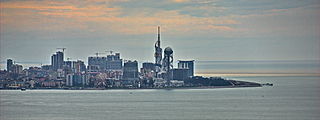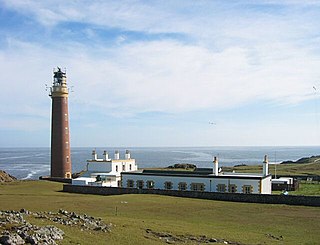Related Research Articles
Corporate welfare is a phrase used to describe a government's bestowal of money grants, tax breaks, or other special favorable treatment for corporations.

De minimis is a Latin expression meaning "pertaining to minimal things", normally in the terms de minimis non curat praetor or de minimis non curat lex, a legal doctrine by which a court refuses to consider trifling matters. Queen Christina of Sweden (r. 1633–1654) favoured the similar Latin adage, aquila non capitmuscās.
A parochial school is a private primary or secondary school affiliated with a religious organization, and whose curriculum includes general religious education in addition to secular subjects, such as science, mathematics and language arts. The word parochial comes from the same root as 'parish', and parochial schools were originally the educational wing of the local parish church. Christian parochial schools are called 'church schools' or 'Christian schools'. In Ontario, parochial schools are called "separate schools".
Legal aid is the provision of assistance to people who are unable to afford legal representation and access to the court system. Legal aid is regarded as central in providing access to justice by ensuring equality before the law, the right to counsel and the right to a fair trial. This article describes the development of legal aid and its principles, primarily as known in Europe, the Commonwealth of Nations and in the United States.

The Direct Subsidy Scheme (DSS) is instituted by the Education Bureau of Hong Kong to enhance the quality of private schools at the primary and secondary levels. The Hong Kong government has been encouraging non-government secondary schools which have attained a sufficiently high educational standard to join the DSS by providing subsidies to enhance the quality of private school education since the 1991–92 school year. In the 2000–01 school year, the DSS is extended to primary schools. In the 2001–02 school year, the terms of the DSS were significantly improved to attract more schools to join the scheme. Under the scheme, schools are free to decide on their curriculum, fees, and entrance requirements.

Philip Murray was a Scottish-born steelworker and an American labor leader. He was the first president of the Steel Workers Organizing Committee (SWOC), the first president of the United Steelworkers of America (USWA), and the longest-serving president of the Congress of Industrial Organizations (CIO).
Norman MacLeod, known in Gaelic as Caraid nan Gàidheal, was a Church of Scotland minister, poet, and writer. He was Chaplain to Queen Victoria and Dean of the Chapel Royal in Scotland.
A means test is a determination of whether an individual or family is eligible for government assistance or welfare, based upon whether the individual or family possesses the means to do without that help.
Catholic schools are pre-primary, primary and secondary educational institutions administered under the aegis or in association with the Roman Catholic Church. As of 2011, the Catholic Church operates the world's largest religious, non-governmental school system. In 2016, the church supported 43,800 secondary schools and 95,200 primary schools. The schools include religious education alongside secular subjects in their curriculum.

Ludovic Stewart, 2nd Duke of Lennox and 1st Duke of Richmond, Seigneur d'Aubigny in France, lord of the Manor of Cobham, Kent, was a Scottish nobleman who through their paternal lines was a second cousin of King James VI of Scotland and I of England. He was involved in the Plantation of Ulster in Ireland and the colonization of Maine in New England. Richmond's Island and Cape Richmond as well as Richmond, Maine, are named after him. His magnificent monument with effigies survives in Westminster Abbey.

The Law Society of Scotland is the professional governing body for Scottish solicitors. It promotes excellence among solicitors through the support and regulation of its members. It also promotes the interests of the public in relation to the profession. The Society helps to shape the law for the benefit of both the public and the profession.
A Pell Grant is a subsidy the U.S. federal government provides for students who need it to pay for college. Federal Pell Grants are limited to students with financial need, who have not earned their first bachelor's degree, or who are enrolled in certain post-baccalaureate programs, through participating institutions. Originally known as a Basic Educational Opportunity Grant, it was renamed in 1980 in honor of Democratic U.S. Senator Claiborne Pell of Rhode Island. A Pell Grant is generally considered the foundation of a student's financial aid package, to which other forms of aid are added. The Federal Pell Grant program is administered by the United States Department of Education, which determines the student's financial need and through it, the student's Pell eligibility. The U.S. Department of Education uses a standard formula to evaluate financial information reported on the Free Application for Federal Student Aid (FAFSA) for determining the student's Expected Family Contribution (EFC).
Grove City College v. Bell, 465 U.S. 555 (1984), was a case in which the United States Supreme Court held that Title IX, which applies only to colleges and universities that receive federal funds, could be applied to a private school that refused direct federal funding but for which a large number of students had received federally funded scholarships. The Court also held that the federal government could require a statutorily mandated "assurance of compliance" with Title IX even though no evidence had been presented to suggest that Grove City College had discriminated. However, the Court also held that the regulation would apply only to the institution's financial aid department, not to the school as a whole.
Sir Lewis Bellenden of Auchnole and Broughton, was the eldest son of Sir John Bellenden of Auchnole & Broughton, whom he succeeded as Lord Justice Clerk on 15 March 1577.

A Grant School is a special type of secondary school in Hong Kong. According to the current legislation, "Grant Schools" refer to "any secondary school which receives subsidies in accordance with the Code of Aid for Secondary Schools and which was, before 1 April 1973, in receipt of grants in accordance with the Grant Code". They were established by missionaries and churches in the nineteenth and early twentieth century, and receive grant-in-aid from the government to operate, thus named Grant Schools. Most of the Grant Schools in Hong Kong have good academic achievements.

A legal clinic is a legal aid or law school program providing services to various clients and often hands-on-legal experience to law school students. Clinics are usually directed by clinical professors. Legal clinics typically do pro bono work in a particular area, providing free legal services to clients.

Lewis and Harris, or Lewis with Harris, is a single Scottish island in the Outer Hebrides, divided by mountains. It is the largest island in Scotland and the third largest in the British Isles, after Great Britain and the island of Ireland, with an area of 841 square miles (2,178 km2), which is approximately 1% of the area of Great Britain. The northern two-thirds is called [the Isle of] Lewis and the southern third [the Isle of] Harris; each is frequently referred to as if it were a separate island.

Butt of Lewis Lighthouse, designed by David Stevenson, was built at Butt of Lewis to aid shipping in the 1860s. Unusual for a lighthouse in Scotland, it is constructed of red brick, and is unpainted. The station was automated in 1998, one of the last to be converted. A modern differential GPS base station has now been sited on a nearby hill to further aid navigation. This hill was also the site for a Lloyd's Signal Station from the 1890s.

Scottish education in the nineteenth century concerns all forms of education, including schools, universities and informal instruction, in Scotland in the nineteenth century. By the late seventeenth century there was a largely complete system of parish schools, but it was undermined by the Industrial Revolution and rapid urbanisation. The Church of Scotland, the Free Church of Scotland and the Catholic church embarked on programmes of school building to fill in the gaps in provision, creating a fragmented system. Attempts to supplement the parish system included Sunday schools, mission schools, ragged schools, Bible societies and improvement classes. Scots played a major part in the development of teacher education with figures including William Watson, Thomas Guthrie, Andrew Bell, John Wood and David Stow. Scottish schoolmasters gained a reputation for strictness and frequent use of the tawse. The perceived problems and fragmentation of the Scottish school system led to a process of secularisation, as the state took increasing control. The Education (Scotland) Act 1872 transferred the Kirk and Free Kirk schools to regional School Boards and made some provision for secondary education. In 1890 school fees were abolished, creating a state-funded, national system of compulsory free basic education with common examinations.
References
- ↑ The Scottish Law Reporter: Containing Reports ... of Cases Decided in the Court of Session, Court of Justiciary, Court of Teinds, and House of Lords. W.&R.A. Veitch. 1892. pp. 205–206.
- 1 2 "Education in Lewis: Present deficiencies". The Glasgow Herald . 7 September 1910. p. 22. Retrieved 20 June 2015.